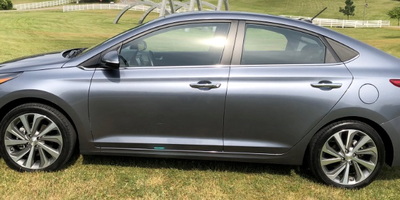So, you’re in the process of buying a new car and you’ve decided that it is more cost effective to go with a 2 or 3 year old pre-owned car. With the quality and durability of cars what they are, this decision makes sense. Now you’re faced with another decision: should you buy a regular used car or certified used cars?
What does Certified Used Vehicle mean?
Back in the early 1990’s, luxury car manufacturers were faced with a large number of lease turn-in vehicles. Since most of these cars were leased through the manufacturers captive finance companies (Mercedes Benz Credit, BMW Credit, etc.), and the vehicles weren’t holding their value if they were being sold to the auto auctions, the manufacturers came up with a win-win solution: If the vehicles met certain age, mileage and inspection restrictions, the dealers could purchase the cars back and sell them with a manufacturers warranty very similar to that found on new cars, except the number of miles and years was extended to cover up to 3 additional years and 100,000 miles.
Due to this additional warranty coverage, the dealer could sell the vehicle at a premium over non-certified vehicles and the vehicles, themselves, would hold their value better. With the increase in used car values, the manufacturers were able to lease their new vehicles for less, due to higher retained (residual) value.
These certified used vehicles could not only be purchased, they could also be leased for less than a comparable new car. For luxury buyers, especially, this has great appeal. After all, a 2 or 3 year old Mercedes with low mileage still makes a statement.
Noting the success that these luxury brands were having, most of the other manufacturers jumped on the bandwagon, offering similar programs. What is or is not covered by these certification programs varies widely. Jaguar, for instance, offers a 6 year/100,000 mile limited warranty (much like a new car) with a Carfax buyback guarantee along with 24 hour roadside assistance, complimentary oil and filter changes and a slew of luxury amenities. Chrysler, on the other hand, offers a 3 month/3,000 mile limited warranty along with an 8 year/80,000 mile powertrain warranty and a Carfax vehicle history report, along with service coupons.
Remember that these are the manufacturer’s certification programs. Just because a dealer advertises a car as certified does not mean it is certified by the manufacturer. Anyone can “certify” a car, since the word, itself, really has no meaning, other than to refer to a program. So make sure that the “certified” car you are buying is certified by the manufacturer. If not, you may be required to pay for any repairs up front and submit the receipts to the warranty company for reimbursement – a process that is much less desirable.
Should I only consider a certified vehicle?
Due to the difference in pricing between a certified and non-certified used car, it would certainly be worthwhile to do some research. Go to edmumds.com or consumerreports.org and find out about the repair history of that particular vehicle. If the repair history is spotty, consider either a certified model or one with a service contract – and compare the difference in price and coverage (systems, deductible, etc.) between the two. If the repair history is stellar, run a Carfax on the non-certified car. If the Carfax report is clean, you might not be able to justify paying the increased price for the certified car.












